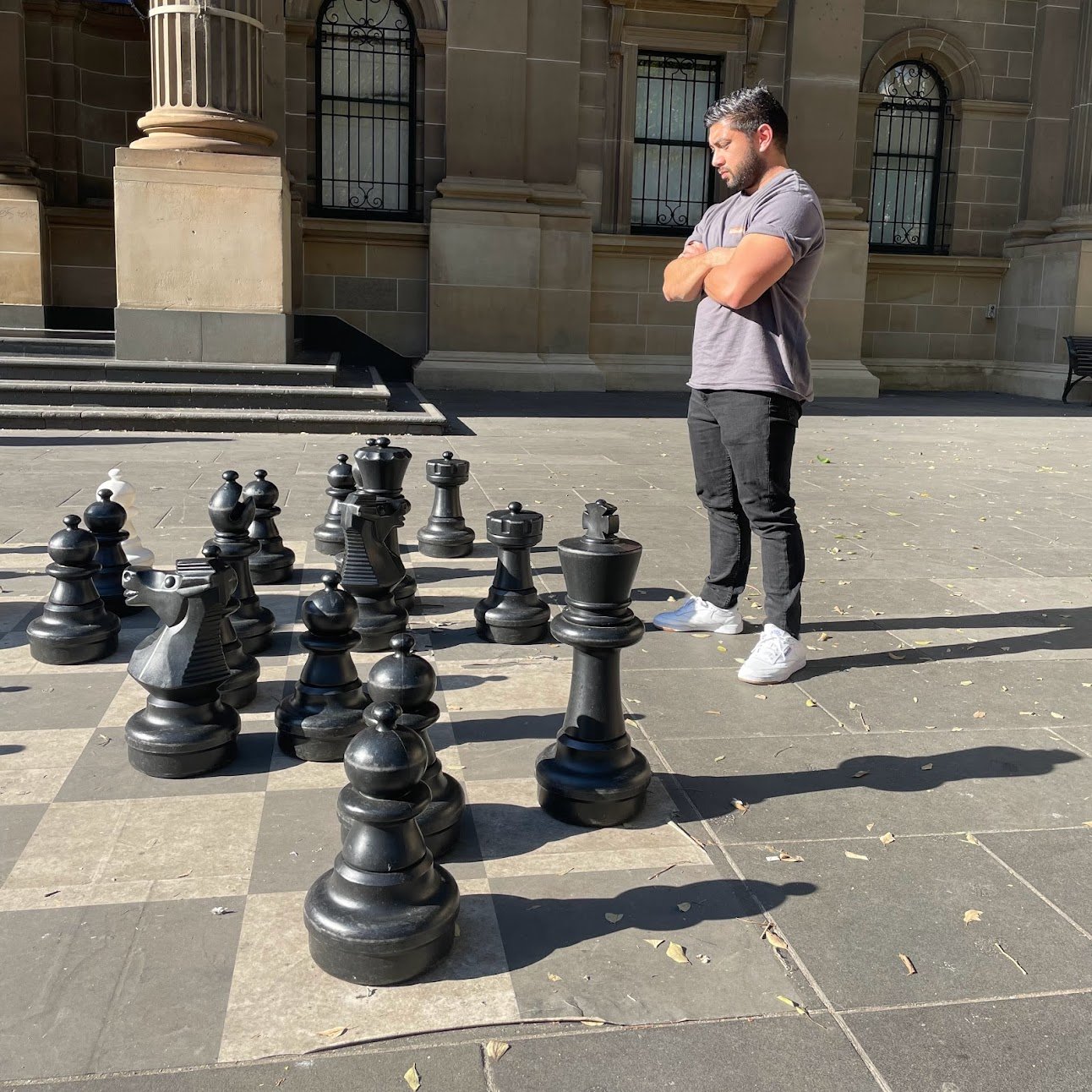Participatory Powerlifting
In a couple of weeks time, I’ll be hitting the platform in my 32nd powerlifting contest. Seven weeks before this meet, I flew to Singapore and the Philippines on a 23-day holiday. In that time, I trained three times — and one of those sessions was a dumbbell only workout in a hotel gym.
So it’s fair to conclude that I won’t be achieving anything spectacular at this upcoming meet. I won’t be in my best physical condition and I won’t be hitting any PBs.
That said then, why am I doing it?
When I was teenager, I was very physically active and engaged in a range of sports. Having played Australian rules football, I was very aerobically fit and spent a lot of time running and improving my fitness. When I was 19, my sister and best friend at the time were getting into running. They were really enthusiastic about running, while I simply did it as a means to an end.
As a way to formalise their running, they entered the Melbourne Marathon. No, not the full length, but the 10km event, and they asked me to do it with them. Of course my answer was “why not!?”. And so with no specific preparation, I entered my first 10km event and I’ll tell you what — I had a blast! Being part of such a big event and spectacle was an incredible and running into the MCG with the sun beaming in was, for me at least, a once in a life time experience. I don’t even remember what time I registered, something like 55 minutes or so, but that wasn’t the point. I’d entered a fun-run and I did just that — I had fun.
I often try to describe powerlifting meets to newbies as “the fun run of lifting weights”. Novices will often try to dismiss the idea of doing a competition saying things like “oh I’m not a professional or anything, I couldn’t compete”, or “oh I’m not good enough to do a competition — I’d come last!”.
I hope you see the link I’m trying to make between powerlifting meets and fun runs.
I’ll give you another example. I picked up competitive chess in 2017. I took it relatively seriously, devoting time and effort to studying and improving. In one conversation I had with my coach, he referred to some players at the Melbourne Chess Club as “barometer players” — players who were consistently playing at various levels. My results against these players could indicate to me how, if at all, I was improving. He said “these guys don’t study or even make an effort to address their weaknesses. They have been playing week after week and haven’t improved in twenty years”. Me, an obsessive learner and self-improver, couldn’t help but think “I couldn’t imagine not improving for so long”.
Why do you think so many people enter fun runs (over 34,000 at the Melb Marathon 2018)? Do you think all of them were there to improve on personal bests? Or were many of them simply there for the fun of it? Why do you think so many people play chess (over 75 million members of chess dot com), again many of whom never improve? Why are there so many people playing local basketball every Tuesday night, or going surfing through the summer, or going snowboarding once a year?
As powerlifters, we put so much pressure on ourselves to improve. After all, that is the essence of the sport. Many of us were drawn to lifting for it’s objective and measurable nature. Squatted 100kg last time, did 107.5kg this time — hurrah, a success! But often times this incessant drive for progress overshadows many of the other reasons why we participate in powerlifting. Often times this drive for progress is viewed in isolation and doesn’t take in to consideration how our training may be affected by external factors. Often times this drive for progress makes us think that if we haven’t improved then there’s no point competing.
On November 5th, I’ll be lifting at the Ballarat Open, held at Ben’s Army Gym. I’m training hard and want to put up the best effort I can. I will bask in the joy of the day of what will likely be my last meet for a little while. I will be a great teammate to the other competitors that are taking to the platform from TSF. I will socialise with others and make new friends. I will challenge myself with weights and attempts that are on the border of my ability. I will use this as an opportunity to test myself mentally and from which to grow. I will enjoy some post-meet beers with my friends. And most importantly, I will have fun.





